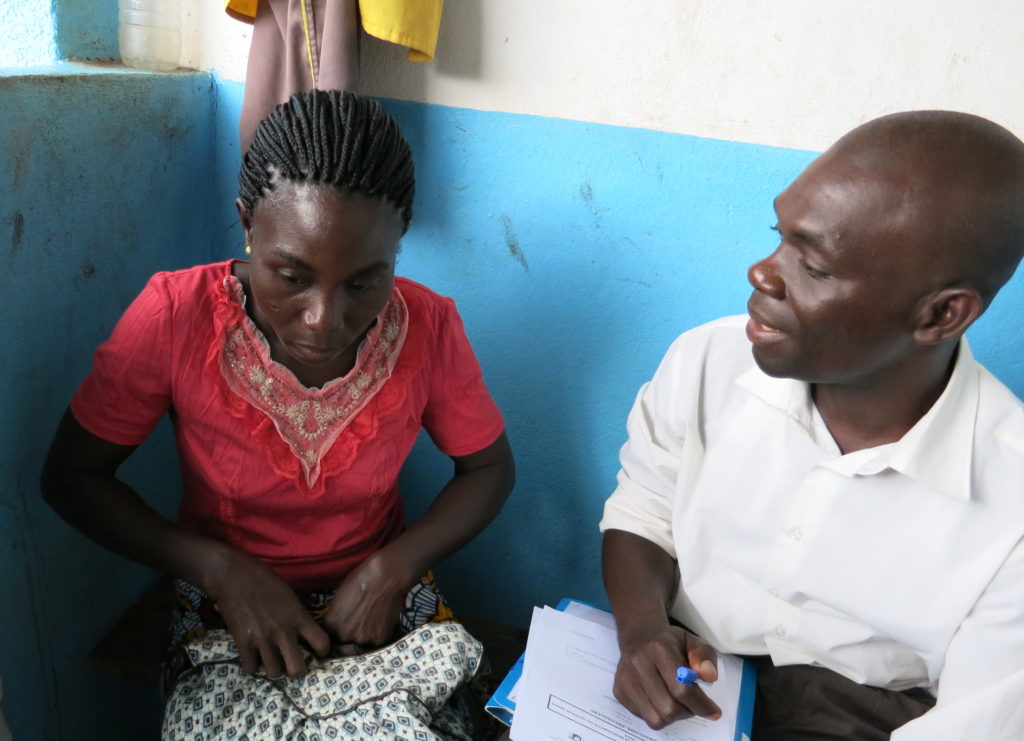Stronger Health Governance to Tackle Emerging Health Emergencies
 The lack of trust between communities and health systems has been cited by the World Health Organization as a significant factor in fueling West Africa’s Ebola epidemic. Many communities did not follow officially recommended practices—such as safe funeral and burial rites. Others did not cooperate with contact tracing ‒ identifying people who may have been close to an infected person.
The lack of trust between communities and health systems has been cited by the World Health Organization as a significant factor in fueling West Africa’s Ebola epidemic. Many communities did not follow officially recommended practices—such as safe funeral and burial rites. Others did not cooperate with contact tracing ‒ identifying people who may have been close to an infected person.
Ebola-affected countries and those on the periphery, including Cote d’Ivoire, are actively working to prevent another disaster. A key step is improving the governance of their health sectors to make them more resilient. Poor governance has been cited as both the cause and effect of weak health systems and corruption is seen as a major deterrent to people using the health system.
Cote d’Ivoire’s Institut National d’Hygiène Publique (INHP) coordinates the country’s Ebola response and oversees the prevention, detection, and response to other emerging disease threats. Recently, INHP and the Ministry of Health identified financial control and audit tools as critical components in health emergency preparedness.
Evaluation Reveals Governance Deficiencies
Why would the Ivoirian government choose these tools to boost health security and resilience? The answer lies in a joint MOH/Inspector General-HFG study, Évaluation de la Gouvernance du Secteur Santé en Côte d’Ivoire, which found significant health governance deficiencies. Findings included the widespread use of informal payments and a lack of financial recordkeeping.
Dr. Niangue Joseph, the Assistant Cabinet Director for the Ministry of Health and Public Hygiene, led the dissemination of the study to 20 of Cote d’Ivoire’s health regions:
“We now have evidence on the level of governance of our health system. Through the wide sharing of the survey results with our health regions we have created a culture of accountability in some regions. We have seen this accountability and attention to governance at the Ministry in the preparation of the response to Ebola with a focus on tools to strengthen budget transparency and accountability. Beyond the response to Ebola, these tools will serve to strengthen the overall system.”
 Feedback Session in Abidjan.
Feedback Session in Abidjan.
The report describes how provider demands for informal payments negatively impacted women and those with low literacy levels. 65 percent of women surveyed reported making informal payments compared with 35 percent of men. 36.5 percent of either gender with no schooling said they had resorted to informal payments compared to 10.9 percent of clients with the highest level of education. The proportion of women making informal payments was always equal to or higher than that of men of the same education level.
The findings were shared openly and widely with MOH stakeholders, USAID, Elisabeth Glaser Pediatric Aids Foundation, Search for Common Ground, WHO, UNDP, the National Secretary of Governance and Capacity Building, the National Institute of Public Health, the University of Bouaké, the University of Abidjan, and civil society organizations.
As a result, the government decided to develop governance tools to improve oversight of the health sector. Other gaps in accountability have been addressed through a series of trainings led by HFG, for MOH staff, government institutions, donors, and NGOs. The trainings covered a range of topics, including:
- What is absenteeism and which tools can address absenteeism?
- What is corruption and how does it manifest in the health sector?
- What are the main risks of corruption in the health sector?
- What tools can identify, track and measure corruption risks and corruption?
In addition, HFG supported the Inspector General in organizing training of trainers’ sessions on health governance and accountability. To institutionalize better governance, these sessions were conducted by national experts from the MOH with 100 participants coming from all levels of the health system (central, regional, and district). To put this learning into action, HFG supported the MSLS Inspector General’s office to conduct feedback sessions for all 20 health regions to engage regional and district staff how to improve accountability.
With newly-identified cases of Ebola still emerging on Cote d’Ivoire’s borders as well as the prospect of future emerging infectious disease, the work to strengthen accountability in the country’s health sector has only accelerated.
Download in PDF


